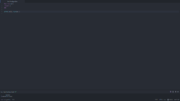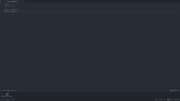Difference between revisions of "Basic lua: Types"
From The Official Visionaire Studio: Adventure Game Engine Wiki
| (15 intermediate revisions by the same user not shown) | |||
| Line 1: | Line 1: | ||
| − | |||
{| class="in" | {| class="in" | ||
|- | |- | ||
| Line 6: | Line 5: | ||
| class="i_arrow clickablecell" | [[basic_lua:_Tables|>]] | | class="i_arrow clickablecell" | [[basic_lua:_Tables|>]] | ||
|} | |} | ||
| + | <hr> | ||
| + | There are multiple lua types available, which are automatically determined by the returned value of the variable, function or table. | ||
| + | |||
== Types == | == Types == | ||
{| class="ts" | {| class="ts" | ||
|- | |- | ||
| − | | boolean || width="90%" | This returns a value of '''true''' or '''false'''. | + | | <span class="vsyellow">boolean</span> || width="90%" | This returns a value of '''true''' or '''false'''. |
|- | |- | ||
| − | | function || A function usually contains a list of actions to be executed & can often be used to calculate & return values. | + | | <span class="vsyellow">function</span> || A function usually contains a list of actions to be executed & can often be used to calculate & return values. |
|- | |- | ||
| − | | nil || If no data type is returned then whatever you queried is either empty or does not exist, thus it is '''nil'''. | + | | <span class="vsyellow">nil</span> || If no data type is returned then whatever you queried is either empty or does not exist, thus it is '''nil'''. |
|- | |- | ||
| − | | number || This usually contains an integer (whole) or floating point (decimal) number. | + | | <span class="vsyellow">number</span> || This usually contains an integer (whole) or floating point (decimal) number. |
|- | |- | ||
| − | | string || This usually contains text or numbers wrapped in "quotation marks" or 'apostrophes'. | + | | <span class="vsyellow">string</span> || This usually contains text or numbers wrapped in "quotation marks" or 'apostrophes'. |
|- | |- | ||
| − | | table || This usually consists of an array, or multiple arrays of data & data types. | + | | <span class="vsyellow">table</span> || This usually consists of an array, or multiple arrays of data & data types. |
|} | |} | ||
| + | === Boolean === | ||
{| class="ts" | {| class="ts" | ||
|- | |- | ||
| − | ! | + | ! prints true !! |
|- | |- | ||
| − | | <syntaxhighlight> | + | | <syntaxhighlight lang="lua"> |
local a = true | local a = true | ||
print( a, type(a) ) | print( a, type(a) ) | ||
| − | </syntaxhighlight> || width=" | + | </syntaxhighlight> || width="180px" style="vertical-align:middle;" | [[File:Basic_lua_(types)_1.png|frameless|center|180px]] |
|} | |} | ||
| + | === Function === | ||
{| class="ts" | {| class="ts" | ||
|- | |- | ||
| − | ! | + | ! prints 7 !! |
|- | |- | ||
| − | | <syntaxhighlight> | + | | <syntaxhighlight lang="lua"> |
function a(i) | function a(i) | ||
return i | return i | ||
| Line 43: | Line 47: | ||
print( a(7), type(a) ) | print( a(7), type(a) ) | ||
| − | </syntaxhighlight> || width=" | + | </syntaxhighlight> || width="180px" style="vertical-align:middle;" | [[File:Basic_lua_(types)_2.png|frameless|center|180px]] |
|} | |} | ||
| + | === Nil === | ||
{| class="ts" | {| class="ts" | ||
|- | |- | ||
| − | ! | + | ! prints nil, nil !! |
|- | |- | ||
| − | | <syntaxhighlight> | + | | <syntaxhighlight lang="lua"> |
local a = nil | local a = nil | ||
print( a, " type = " .. type(a) ) | print( a, " type = " .. type(a) ) | ||
print( b, " type = " .. type(b) ) | print( b, " type = " .. type(b) ) | ||
| − | </syntaxhighlight> || width=" | + | </syntaxhighlight> || width="180px" style="vertical-align:middle;" | [[File:Basic_lua_(types)_3.png|frameless|center|180px]] |
|} | |} | ||
| + | === Number === | ||
{| class="ts" | {| class="ts" | ||
|- | |- | ||
| − | ! | + | ! prints 7, 7.25 !! |
|- | |- | ||
| − | | <syntaxhighlight> | + | | <syntaxhighlight lang="lua"> |
local a = 7 | local a = 7 | ||
local b = 7.25 | local b = 7.25 | ||
| Line 68: | Line 74: | ||
print( a, type(a) ) | print( a, type(a) ) | ||
print( b, type(b) ) | print( b, type(b) ) | ||
| − | </syntaxhighlight> || width=" | + | </syntaxhighlight> || width="180px" style="vertical-align:middle;" | [[File:Basic_lua_(types)_4.png|frameless|center|180px]] |
|} | |} | ||
| + | === String === | ||
{| class="ts" | {| class="ts" | ||
|- | |- | ||
| − | ! | + | ! prints hello world !! |
|- | |- | ||
| − | | <syntaxhighlight> | + | | <syntaxhighlight lang="lua"> |
local a = "hello world" | local a = "hello world" | ||
print( a, type(a) ) | print( a, type(a) ) | ||
| − | </syntaxhighlight> || width=" | + | </syntaxhighlight> || width="180px" style="vertical-align:middle;" | [[File:Basic_lua_(types)_5.png|frameless|center|180px]] |
|} | |} | ||
| + | === Table === | ||
{| class="ts" | {| class="ts" | ||
|- | |- | ||
| − | ! | + | ! prints 1, 2, 3, 4, 5, 6, 7, 8 !! |
|- | |- | ||
| − | | <syntaxhighlight> | + | | <syntaxhighlight lang="lua"> |
local a = {1,1+1,1*3,2*2,20/4,"6",3.5*2,10-2} | local a = {1,1+1,1*3,2*2,20/4,"6",3.5*2,10-2} | ||
print( a[1], a[2], a[3], a[4], a[5], a[6], a[7], a[8], type(a) ) | print( a[1], a[2], a[3], a[4], a[5], a[6], a[7], a[8], type(a) ) | ||
| − | </syntaxhighlight> || width=" | + | </syntaxhighlight> || width="180px" style="vertical-align:middle;" | [[File:Basic_lua_(types)_6.png|frameless|center|180px]] |
|} | |} | ||
| − | + | <hr> | |
{| class="in" | {| class="in" | ||
|- | |- | ||
Latest revision as of 03:16, 3 September 2022
| < | Index | > |
There are multiple lua types available, which are automatically determined by the returned value of the variable, function or table.
Types
| boolean | This returns a value of true or false. |
| function | A function usually contains a list of actions to be executed & can often be used to calculate & return values. |
| nil | If no data type is returned then whatever you queried is either empty or does not exist, thus it is nil. |
| number | This usually contains an integer (whole) or floating point (decimal) number. |
| string | This usually contains text or numbers wrapped in "quotation marks" or 'apostrophes'. |
| table | This usually consists of an array, or multiple arrays of data & data types. |
Boolean
| prints true | |
|---|---|
local a = true
print( a, type(a) )
|
Function
| prints 7 | |
|---|---|
function a(i)
return i
end
print( a(7), type(a) )
|
Nil
| prints nil, nil | |
|---|---|
local a = nil
print( a, " type = " .. type(a) )
print( b, " type = " .. type(b) )
|
Number
| prints 7, 7.25 | |
|---|---|
local a = 7
local b = 7.25
print( a, type(a) )
print( b, type(b) )
|
String
| prints hello world | |
|---|---|
local a = "hello world"
print( a, type(a) )
|
Table
| prints 1, 2, 3, 4, 5, 6, 7, 8 | |
|---|---|
local a = {1,1+1,1*3,2*2,20/4,"6",3.5*2,10-2}
print( a[1], a[2], a[3], a[4], a[5], a[6], a[7], a[8], type(a) )
|
| < | Index | > |





